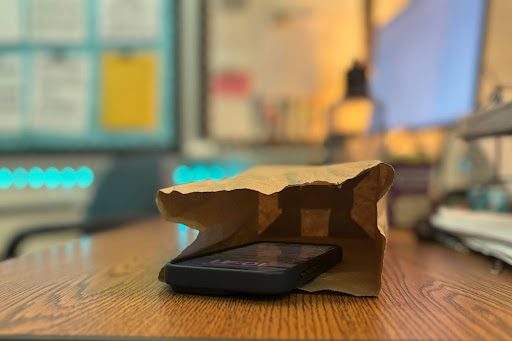The Colorado Supreme Court decided to remove Donald Trump from the state’s voting ballots for the 2024 election on Dec. 19. This idea was presented by six local voters—four of which were republicans who pulled from a recent law review article discussing Section Three of the United State’s fourteenth Amendment.
The court decision to remove Trump was a 4-to-3 vote and was the result of a lot of deliberation. Section Three of the 14th Amendment states that officials may be disqualified if they participate in insurrection of rebellion. The court determined that Trump’s actions concerning Jan.6 qualified for these boundaries, therefore disqualifying him from the upcoming presidential race.
However, the decision is currently on pause as of early January, since the Colorado Supreme Court appealed their previous decision. After urging from both Trump and his team along with Colorado’s government, the Supreme Court has recently agreed to hear the case, which is scheduled to take place on Feb. 8.
Some at RM are unsure of the outcome of the trial.
“I would say that it’s difficult, because how do you prove that he’s guilty of insurrection? That’s the debatable part, he was definitely involved but is he legally at fault? So if he’s legally at fault, then I would say sure he can’t run for president, but that’s up to lawyers to decide,” Government teacher Charles Holt said.
A summary of Trump’s briefs having already been published by his lawyers. The main argument shown in these summaries is that the position of president does not count as an ‘officer of the United States,’ and therefore is not addressed in Section Three.
Some students have voiced skepticism that the Supreme Court will side with Colorado. Junior Jessica Bui said, “Considering how it’s kind of controversial based on Colorado’s 4-3 [decision]… and considering how right now the Supreme Court is more conservative… I think that the decision might change.”
In previous cases, this has held up, with large Supreme Court decisions being favorable towards right wing parties.
Mr. Holt had a similar opinion. “I would say there’s a very low chance that they will say he can’t run for president…just because of the conservative numbers that they have on the court, I think it’s a no,” he said.
Even though this position makes Trump being removed unlikely, if made official, many believe that this decision could create large ripples in the workings of nationwide primaries.
“Other states might follow suit, especially since one state has already done it, so maybe they’ll feel more confident in their decision,” sophomore Freyer Resler said.
These thoughts have been echoed by many prominent news sources, as other states make moves to remove him from their ballots. Maine’s Secretary of State determined that he was ineligible due to Section Three as well, but the decision was paused by a higher court judge until the Supreme Court’s decision is finalized.
The public response so far seems uniform and mainly from those who oppose the Colorado Court’s decision. Bui said, “I think that there would be a lot of people that would be outraged at this decision, specifically the people that strongly support Trump.”
Similarly, Resler said, “I think a lot of people are gonna be really mad, and a lot of people are gonna be really happy, I don’t think there’s gonna be a lot of in-between emotions.”
As opening primaries fast approach on March 5, better known as Super Tuesday, the Supreme Court is under a lot of pressure from both sides to expedite this case. And the decision is sure to set the scene for the United State’s final presidential election later this year.
As many RM students are preparing to vote for the first time, many have expressed that this decision is something they will be monitoring.








